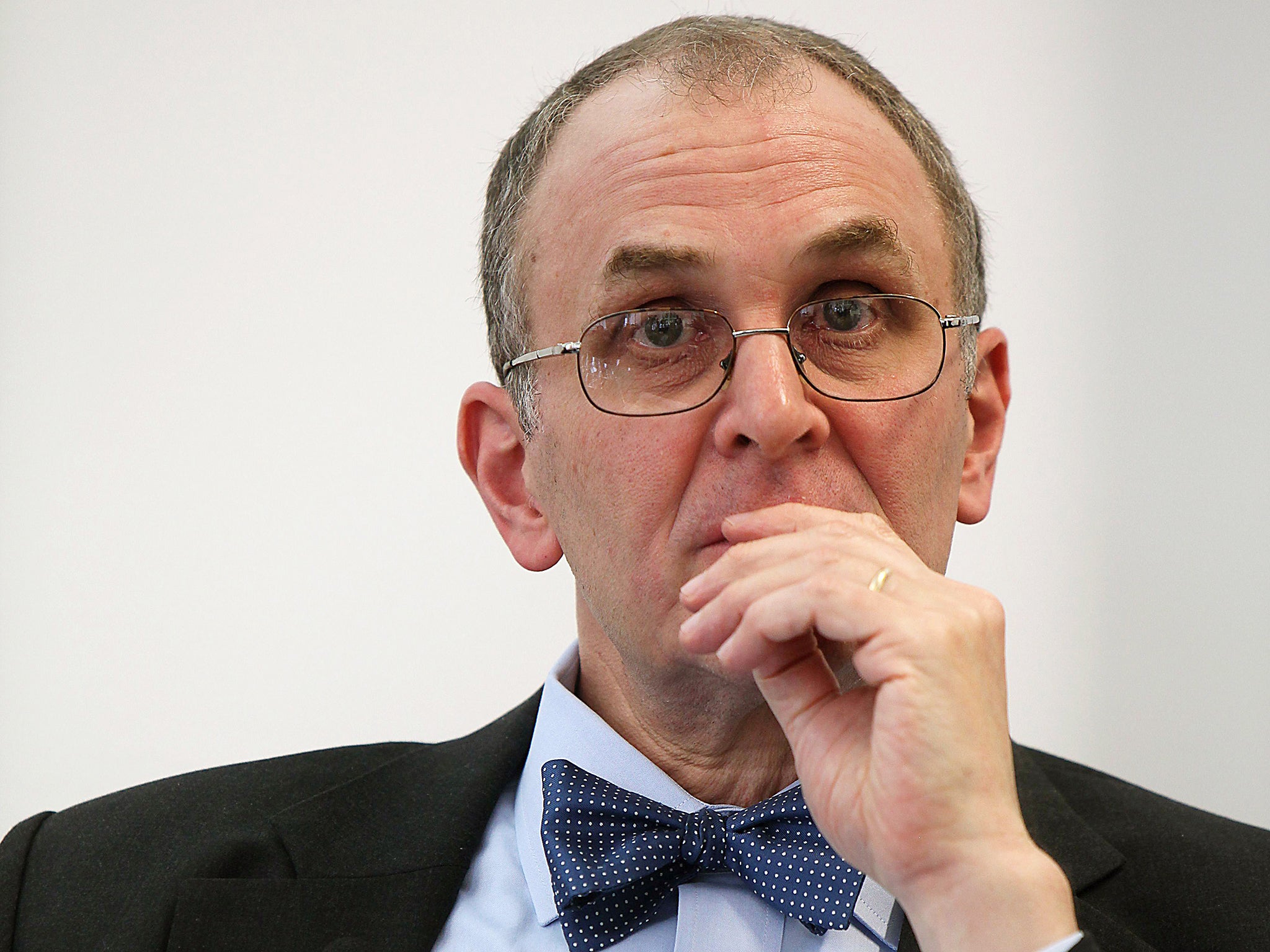George W Bush's senior adviser describes Donald Trump as mentally unwell
'I’ve been in this town for 26 years. I have never seen anything like this. I genuinely do not think this is a mentally healthy president,” says Mr Cohen

A former senior advisor to George W Bush has cast doubt on Donald Trump suitability to be President.
Eliot Cohen, a senior State Department official under Mr Bush and a member of his National Security Council, said of the Trump administration this week that he had “never seen anything like it” and expressed his “genuine” belief that Mr Trump is mentally unwell.
“I’ve been in this town for 26 years. I have never seen anything like this. I genuinely do not think this is a mentally healthy president,” Mr Cohen told the Huffington Post.
It is not the first time Mr Cohen, who now sits on the America Abroad Media advisory board, has expressed concern about the mental health of Mr Trump and his team.
In November, days after Mr Trump’s election victory, Mr Cohen tweeted that he was “worried about the mental state” of the next president, adding: “Strain is beginning to tell all the way around.”
Also in November, the scholar said he had experienced an unpleasant encounter over the phone with a senior member of Mr Trump's team, who allegedly vented his fury at all those who had opposed the Republican nominee.
Following the phone conversation, Mr Cohen wrote in a tweet: “After exchange [with] Trump transition team, changed my recommendation: stay away. They're angry, arrogant, screaming ‘you LOST!’ Will be ugly.”
After meeting with members of Mr Trump's transition team, Professor Cohen warned that working for the billionaire businessman could mean “compromising one’s integrity and reputation”.
Writing in The Washington Post, he wrote: ”I am a national security Never-Trumper who, after the election, made the case that young conservatives should volunteer to serve in the new administration, warily, their undated letters of resignation ready. That advice, I have concluded, was wrong.
“The tenor of the Trump team, from everything I see, read and hear, is such that, for a garden-variety Republican policy specialist, service in the early phase of the administration would carry a high risk of compromising one’s integrity and reputation.”
Professor Cohen added: “No band of brothers this: rather the permanent campaign as waged by triumphalist rabble-rousers and demagogues, abetted by people out of their depth and unfit for the jobs they will hold, gripped by grievance, resentment and lurking insecurity.
"Their mistakes - because there will be mistakes - will be exceptional."
More recently, Mr Cohen has tweeted that he “can’t blame” the speaker of the House of Commons John Bercow for expressing his opposition to the President addressing parliament at Westminster Hall.
In December, three leading professors of psychiatry wrote to Barack Obama expressing their grave concerns over Trump's mental stability:
“His widely reported symptoms of mental instability - including grandiosity, impulsivity, hypersensitivity to slights or criticism, and an apparent inability to distinguish between fantasy and reality - lead us to question his fitness for the immense responsibilities of the office,” the professors from Harvard Medical School and the University of California wrote to the then President, urging him to order a “full medical and neuropsychiatric evaluation” of the then President-elect.
Following Mr Trump's shock election victory, a group called Citizen Therapists Against Trumpism was created, which was joined by thousands of psychologists. They published a manifesto warning of Trump’s psychosis, citing the following as the signs to fear:
“Scapegoating and banishing groups of people who are seen as threats, including immigrants and religious minorities; degrading, ridiculing, and demeaning rivals and critics; fostering a cult of the Strong Man who appeals to fear and anger; promises to solve our problems if we just trust in him; reinvents history and has little concern for truth (and) sees no need for rational persuasion.”
The American Psychiatry Association has a nine-point checklist for narcissism - if someone displays just five of the traits, they have Narcissistic Personality Disorder:
- Has a grandiose sense of self-importance (e.g., exaggerates achievements and talents, expects to be recognised as superior without commensurate achievements).
- Is preoccupied with fantasies of unlimited success, power, brilliance, beauty, or ideal love.
- Believes that he or she is “special” and unique and can only be understood by, or should associate with, other special or high-status people (or institutions).
- Requires excessive admiration.
- Has a sense of entitlement, i.e., unreasonable expectations of especially favourable treatment or automatic compliance with his or her expectations.
- Is interpersonally exploitative, i.e., takes advantage of others to achieve his or her own ends.
- Lacks empathy: is unwilling to recognise or identify with the feelings and needs of others.
- Is often envious of others or believes that others are envious of him or her.
- Shows arrogant, haughty behaviours or attitudes.
Join our commenting forum
Join thought-provoking conversations, follow other Independent readers and see their replies
Comments